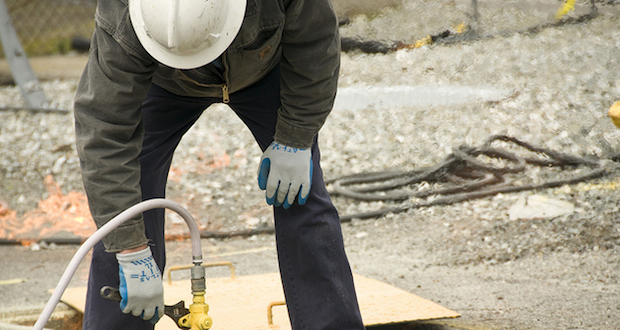A new study from MIT says that natural gas is the key to keeping emissions down while we transfer to renewables. But once we have cheap natural gas flowing, will we ever switch?

Is it possible for the U.S. to cut carbon emissions significantly enough to at least give us a chance at avoiding the worst of climate change? It may be--if we wean ourselves off coal and increase natural gas use, according to a new study from MIT. The study, dubbed The Future of Natural Gas, examines the ways that natural gas--an abundant but limited resource--can inform our energy future.
There is plenty of natural gas in the world--enough for the next 150 years if we continue to consume at the current rate, according to MIT. And ramping up use of existing natural gas combined cycle (NGCC) power plants could displace a third of coal generation and cut CO2 emissions in the U.S. by 20%. The only problem: methane emissions. A recent report in the Climatic Change Letters journal revealed that fracking has a larger greenhouse gas footprint than coal production when escaped methane from wells is factored into the equation.
Fracking isn't inherently unsafe, however. Problems usually arise because of leakage of natural gas and drilling fluids into shallow gas zones (this can cause leakage into groundwater), on-site surface spills, and off-site wastewater disposal. The solution is adherence to industry best practices and oversight of natural gas sites (we've seen how well this has gone in the offshore gas industry)--but according to MIT, "The physical realities of the fracturing process, combined with the lack of reports from the many wells to date of fracture fluid contamination of groundwater, supports the assertion that fracturing itself does not create environmental concerns."
MIT also believes that natural gas can act as a bridge fuel until we transition to renewables. We can already see this happening with GE's FlexEfficiency 50, a natural gas power plant made to work with renewables that are only available intermittently.
None of this means that natural gas is a panacea for our energy woes. A report released this week from the International Energy Agency claims that increased use of natural gas could actually delay the deployment of renewables. This is because "increased use could muscle out low-carbon fuels, such as renewables and nuclear--particularly in the wake of the incident at Fukushima and the likelihood of a reduced role for nuclear in some countries," according to IEA executive director Nobuo Tanaka. So while we can't ignore natural gas, we shouldn't get too comfortable with it, either--or let it distract us from the growing pain-wracked renewable energy industry.
[Image: Puget Sound Energy's Flickr stream]
Reach Ariel Schwartz via Twitter or email.
Read More: Fracking, Natural Gas's Dirty Secret
Laura Harring Naomi Watts Leonor Varela Joanne Montanez Michelle Obama
No comments:
Post a Comment